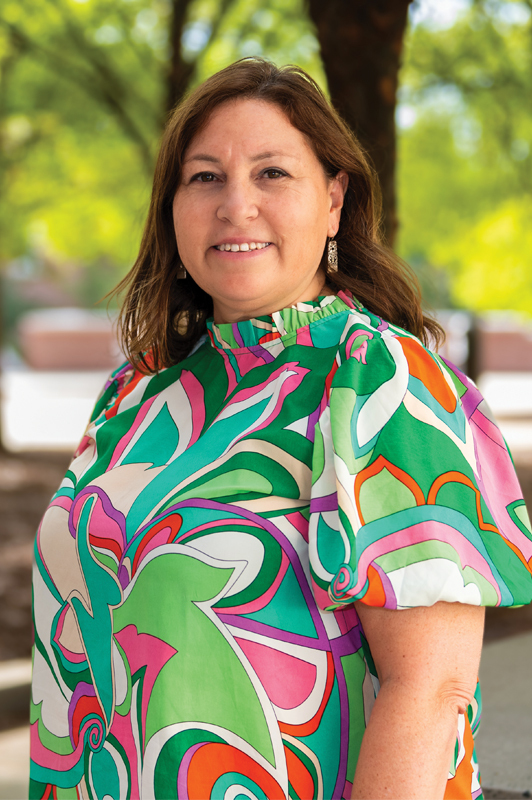Students' awesome research ideas celebrated at college's third AUSome Science in 60 Seconds
Published: Nov 3, 2025 10:00 AM
By Joe McAdory
Can pilot fatigue be measured before takeoff? Can aerodynamic simulations revolutionize aircraft design? Can Auburn Engineering students explain such complex research in just 60 seconds?
Of course they can.
AUsome Science in Sixty Seconds, a research-based competition in its third year presented by the Council of Engineering Graduate Students (CEGS), tasked students to create videos and explain their respective projects in a minute or less.
Since registration opened in August, more than 30 students recorded video presentations using animation, simulation, diagrams, pictures, or demonstrations explaining overviews of their respective studies, but at a level where general audiences can follow. Judging was based on engagement, illumination, creativity and understanding of the subject matter.
Winners were announced during an awards ceremony on Thursday, Oct. 30.
Md Mijanur Rahman, a graduate student in aerospace engineering, and Cade May, a senior in aerospace engineering, earned highest marks among faculty and staff judges – winning top honors in graduate student and undergraduate student categories.
Rahman’s research is rooted in a growing concern within the aviation industry: pilot fatigue. While regulations exist to limit flight hours for a pilot, they don’t always account for individual physiological readiness. Rahman’s approach uses virtual reality flight simulators to monitor real-time biometric data, such as heart rate variability and eye movement patterns, while pilots perform simulated flight tasks. These metrics are then analyzed to produce a “fitness-to-fly” score, which could one day serve as a pre-flight screening tool to help airlines and flight crews make safer decisions.
By focusing on the human element behind the controls, Rahman said his research could help prevent errors caused by fatigue, stress, or cognitive overload.
“The long-term vision of my research is to have adaptive automation in aviation where a pilot's fitness to fly score can be interfaced with artificial intelligence and autopilot systems so that they can really understand whether the pilot is fit to fly and assist / take over control of the aircraft for recovery,” said Rahman, who was also the runner-up in last fall’s Auburn University Three-Minute Thesis competition. “This research could be especially impactful for next-generation air taxis and urban air mobility operations, where pilot readiness is paramount due to the complexity and high stakes of operating in dense airspaces.”
May’s research, meanwhile, tackles the engineering side of aviation innovation. His video reported that aircraft design is traditionally a slow and expensive process, often requiring massive computational resources and wind tunnel testing. By leveraging FlightStream, a software developed by Aerospace Engineering Professor Roy Hartfield and former PhD student Vivek Ahuja (now Siemens director of FlightStream products), May demonstrated that key aerodynamic stability parameters can be calculated in minutes using a standard laptop.
May suggested that his findings could be a game-changer for early-stage design and rapid prototyping.
“During the preliminary phase of aircraft development, having a tool like this to rapidly generate important aerodynamic data can help you quickly filter through design options and narrow them to the most efficient option,” he said. “It saves a lot of time and money during the development process.”
The competition also recognized outstanding entries across several categories:
- Dean’s office winner: Tori Phillips (chemical engineering)
- CEGS most creative: Jesus Granero Garcia (chemical engineering)
- Graduate finalists: Carolina Triboni (civil and environmental engineering), Joseph Moore (electrical and computer engineering)
- Undergraduate finalists: Nicole Teper (chemical engineering), Manan Patel (aerospace engineering)
- People’s choice: Bibek Saptoka (aerospace engineering)
“This year’s competition showcased the incredible depth of talent among our graduate and undergraduate students,” said Maria Auad, associate dean for graduate studies and faculty development. “Their creativity was on full display as they transformed complex research into compelling, one-minute stories. What impressed me most was their ability to communicate their work clearly and confidently through these videos. It’s a testament to the caliber of students we have at Auburn Engineering and their commitment to making science accessible and engaging.”
Media Contact: , jem0040@auburn.edu, 334.559.3447
AUSome Science in 60 Seconds overall graduate winner Md Mijanur Rahman, left, and undergraduate winner Cade May.


